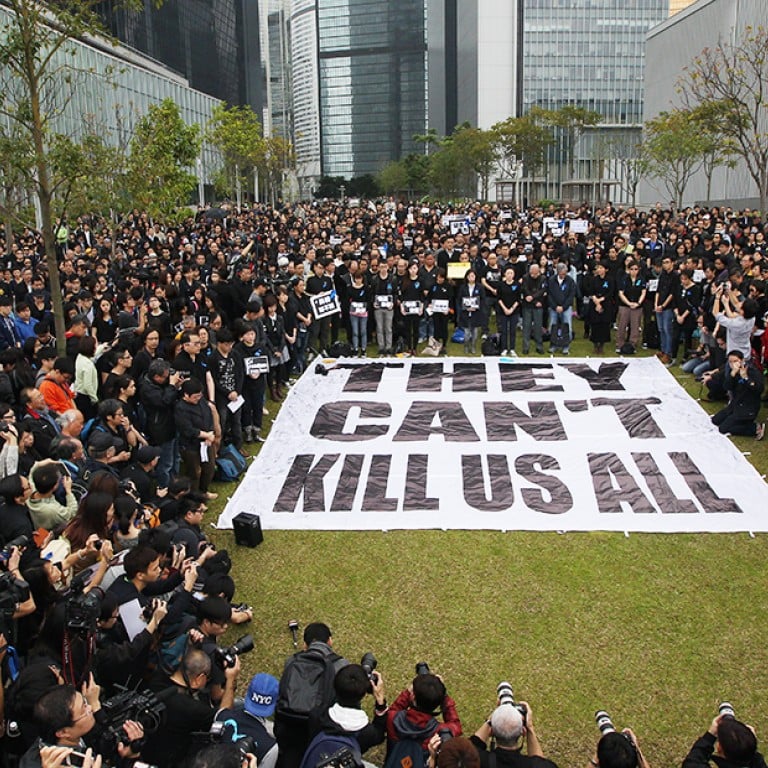
Hong Kong must be alert to gradual erosion of its freedom of expression
Salil Shetty says attacks and pressure on journalists are unacceptable
With Hong Kong's news stands packed with an array of publications critical of leaders of all political stripes, many ask why press freedom is such a concern. This great city has been a torchbearer for a vibrant and independent press in Asia. It is critical it continues to be. The ripples of any attack against press freedom here are felt across the region.
When journalists are threatened, attacked or otherwise cowed into silence, the truth dies.
The relative freedom of Hong Kong-based journalists has resulted in important human rights coverage on China and elsewhere. Without freedom of expression, human rights violations cannot be exposed to the public, they cannot be debated and it is difficult to implement effective reforms.
Yet, when the journalists who seek to tell the story become the story, there is something seriously awry. What is striking about the inaugural findings of the Hong Kong Press Freedom Index is that the journalists' own views on the issue are even more pessimistic than those of the general public.
There are serious questions as to why many outspoken critics of the government and people who are perceived to be independent in political affairs have been suddenly dismissed from their jobs.
Beijing continues to exert influence over Hong Kong's media - through direct pressure from its liaison office here or through indirect interference from editors and owners who have close ties to and interests within mainland China.
The government has been swift to condemn the violent attacks targeting journalists, but most of the incidents remain unresolved.
Hong Kong has enshrined international law regarding freedom of expression - including freedom of the press - into the Basic Law. This means the government has an obligation under domestic law, as well as under international law, to protect such rights. This obligation includes ensuring the safety of journalists and media workers in Hong Kong.
Freedom of expression, which is a basis for creativity, along with sound rule of law, is crucial for some of the city's key industries. In past years, this freedom has gone hand in hand with innovation, openness, and economic growth and vitality.
The financial services and tourism sectors would be affected if freedom of expression were to deteriorate significantly. Imagine if financial traders could not get uncensored economic data, or if tourists could no longer trust that products on sale in Hong Kong are safe, because consumer safety scandals were covered up.
As has often been noted, the Chinese word for "crisis" is made up of the characters for "danger" and "opportunity". The danger is that the attacks on freedom of the press could cause people to avoid speaking out: fear will encourage silence.
Nevertheless, what happened after the attack on former editor Kevin Lau Chun-to was truly inspiring: thousands of Hong Kong people took to the streets to march in defence of freedom of expression.
If the goal of the attack was to make Hongkongers fearful, it failed. If the goal of the attack was to deter Hong Kong journalists from defending freedom of expression and doing high-quality journalism, it failed.
Hong Kong society has responded by affirming its core principles: human rights, freedom of expression, freedom of peaceful assembly, freedom of religion and belief, rule of law and democracy.
Journalists based in this city continue to do invaluable work advancing human rights - on Hong Kong issues, on the mainland and the wider Asian region.
It's indicative of the pivotal role Hong Kong can play. The voice of Hong Kong is crucial to defending human rights throughout Asia. It must not be silenced.
